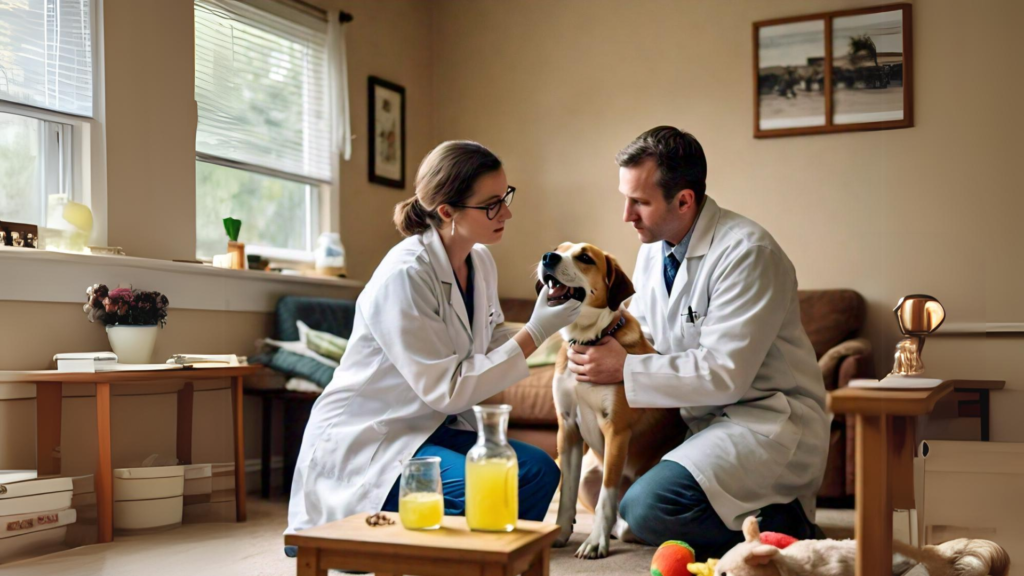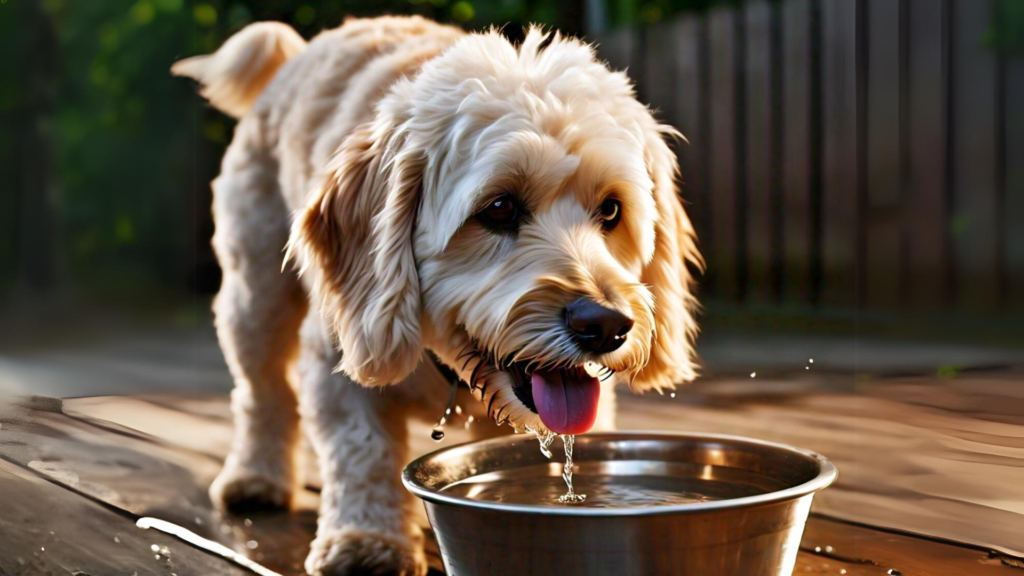Have you ever wondered, can dogs have lemon juice? As a dog owner, you’re always on the lookout for new treats and remedies to keep your furry friend happy and healthy. Lemons, with their zesty flavor and health benefits for humans, might seem like a great idea. But are they safe for our canine companions? This question sparks curiosity and concern among pet owners. Let’s explore whether lemon juice is a safe addition to your dog’s diet or if it’s something you should avoid. From potential benefits to serious risks, we’ll uncover everything you need to know to make an informed decision for your beloved pet.
Can Dogs Have Lemon Juice?
No, dogs should definitely avoid lemon juice. It’s packed with citric acid, which is too harsh for their digestive systems. Ingesting lemon juice can lead to stomach upset, vomiting, diarrhea, and even depression. If you notice your dog licking up spilled lemon juice or eating a lemon rind, contact your veterinarian right away.
Lemon Juice in Dog’s Diet
Some sources might suggest adding a tiny amount of lemon juice to your dog’s food to improve their appetite. But it’s generally not recommended. There are safer and more effective ways to entice a picky eater. Chopped fresh herbs like parsley or dill can add a bit of flavor and aroma to their food. You could also try a tiny sliver of cooked unseasoned chicken or meat. Remember, even a small amount of lemon juice can cause digestive problems, so it’s best to err on the side of caution.

Can Dogs Have Lemon Juice in Food?
Adding lemon juice to your dog’s food is a recipe for tummy trouble. Even a small amount can irritate their stomachs and cause vomiting or diarrhea. Their digestive systems handle a different pH level than the acidity of lemon juice. If you’re looking to add some variety to your dog’s meals, look for dog-safe alternatives.
Can Dogs Have Lemon Juice in Their Water?
Lemon juice is not a good addition to your dog’s water bowl, and for good reason. It makes the water too acidic, causing digestive upset. The strong citrus scent is also unpleasant for most dogs. Their powerful sense of smell makes them particularly sensitive to the acidity’s sharp aroma. They’ll likely avoid the water altogether. This can lead to dehydration, which is a serious health concern. If you’re concerned about your dog’s water intake, talk to your vet. They can rule out any underlying medical conditions and offer tips to encourage your dog to drink more. They can recommend using a pet fountain or adding a small amount of dog-safe broth to their water bowl.
Can Dogs Have Lemon Juice in Baby Food?
Generally, it’s not safe for dogs to have lemon juice in baby food. Baby food might contain ingredients that are harmful to dogs, like onion or garlic powder. Additionally, the lemon juice itself can cause digestive issues.
Can Dogs Have Lemon Juice Concentrate?
Lemon juice concentrate is a definite no for dogs. It’s even stronger and more acidic than regular lemon juice, posing a significant health risk. It can cause severe stomach upset, vomiting, and even burns in their mouths and esophagus. If you suspect your dog ingested lemon juice concentrate, seek immediate veterinary attention.

Risks and Concerns
Lemon juice poses several risks to dogs due to its high acidity and various compounds. Let’s delve into the potential problems:
Risks of Lemon Juice for Dogs
- Inflammation of the Digestive Tract: The citric acid in lemon juice can irritate the delicate lining of a dog’s stomach and intestines. It can lead to inflammation, pain, and discomfort.
- Vomiting and Diarrhea: Upset stomachs often lead to vomiting and diarrhea. It can further cause dehydration and electrolyte imbalances in dogs.
- Citric Acid Poisoning: In large enough quantities, lemon juice can cause citric acid poisoning. Symptoms include tremors, weakness, and depression.
- Dental Enamel Erosion: The acidity of lemon juice can erode the enamel on your dog’s teeth. It can make them more susceptible to cavities and pain.
Can Lemons Kill Dogs?
Generally, the amount of lemon juice a dog might encounter wouldn’t be fatal. However, if a dog ingests a large quantity of lemon juice concentrate or if they have underlying health conditions, it could be serious.
My Dog Licked a Lemon – What to Do
If you notice your dog licking up spilled lemon juice or chewing on a lemon rind, monitor them closely. Small amounts might not cause any problems. But be on the lookout for vomiting, diarrhea, or signs of discomfort.If you suspect your dog ingested a significant amount of lemon juice, especially concentrate, contact your veterinarian immediately. They can advise on the best course of action and provide treatment if necessary.

Is Lemon Juice Safe for Dogs’ Skin?
No, lemon juice is not safe for dogs’ skin. Here’s why:
- Irritation: The acidity of lemon juice can irritate your dog’s skin. It can cause itching, redness, and inflammation.
- Natural Oils: Dogs have a natural oil layer on their skin. It helps protect them from moisture loss and irritation. Lemon juice can disrupt this oil layer, leaving their skin vulnerable.
Dog Safe Drinks Besides Water
Water should always be your dog’s primary source of hydration. Though there are some safe alternatives you can offer once in a while for a bit of variety:
- Unsalted Broth: Plain, unsalted broth made from chicken, beef, or vegetables offers a tasty and hydrating treat.
- Coconut Water: Unsweetened coconut water provides electrolytes and some essential nutrients for your dog.
- Diluted Dog-Safe Fruit or Vegetable Juice: A small amount of diluted juice made from dog-safe fruits (like watermelon or apples) or vegetables (like carrots or cucumbers) can be a refreshing option. Always dilute it heavily with water and avoid juices with added sugar.
- Herbal Tea (Cooled): Chamomile or peppermint tea can be a soothing drink for your dog’s stomach. Make sure to cool them down before offering them to the dog. Some herbs can be harmful to dogs. So consult your veterinarian before offering any herbal tea.
Remember, moderation is key. Offer these alternatives only now and then and in small quantities. Always prioritize fresh, clean water for your dog’s daily hydration needs.

Conclusion
While lemons might be a refreshing treat for humans, they’re best left out of your dog’s diet. The acidity in lemon juice can irritate their digestive system. It can lead to vomiting, diarrhea, or even citric acid poisoning. If you’re looking to add some variety to their water intake, consult your veterinarian. They might recommend dog-safe alternatives like diluted unsweetened broth or coconut water. Remember, fresh, clean water is always the best way to keep your canine companion hydrated!